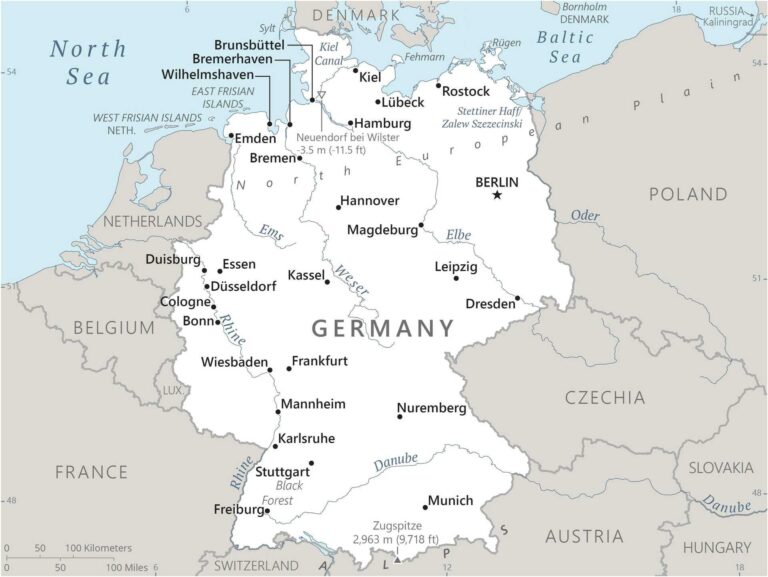In a significant escalation of geopolitical tensions in space, Germany has issued a stark warning to Russia regarding its recent activities beyond Earth’s atmosphere. The German government expressed deep concern over Moscow’s aggressive maneuvers and the potential threat they pose to the stability and security of space operations. This move signals heightened vigilance among Western nations as space increasingly becomes a contested domain with profound implications for global security.
Germany Signals Escalating Concerns Over Russia’s Militarization of Space
Germany’s defense officials have raised alarms over the increasing militarization of space by Russia, signaling a shift in global security dynamics beyond Earth’s atmosphere. Recent intelligence indicates that Russia is developing advanced anti-satellite weapons and space-based missile systems, pushing strategic competition into orbit. German analysts stress that this escalation poses a direct threat to the stability of international space operations, which have until now been largely cooperative.
The concerns come amid mounting geopolitical tensions and follow numerous tests of ground-to-space weaponry by Moscow. Germany’s stance emphasizes the need for:
- Enhanced European cooperation on space security and defense strategies
- Increased transparency and dialogue to prevent conflicts in orbit
- Investment in resilient satellite infrastructure to safeguard critical data networks
| Aspect | Current Status | Germany’s Response |
|---|---|---|
| Anti-Satellite Weapon Tests | Frequent and escalating | Calls for international monitoring |
| Satellite Defense Systems | Developing rapidly | Boost funding for space technology |
| International Treaties | Largely outdated | Push for updated arms control agreements |
Experts Analyze Strategic Implications of Russia’s Space Activities on Global Security
Leading defense analysts emphasize that Russia’s recent advancements in space technology extend beyond mere exploration, signaling a calculated move to reshape power dynamics in orbit. This development has prompted heightened vigilance among NATO countries, with particular concerns about anti-satellite (ASAT) systems and the potential militarization of space corridors traditionally used for civilian navigation and communication. Experts warn that the weaponization of space assets could undermine global security frameworks by increasing the risks of miscalculation and triggering an arms race beyond Earth’s atmosphere.
Key strategic considerations highlighted by security experts include:
- Disruption of communication networks: Targeting satellites critical to civilian and military operations.
- Technological escalation: Rapid deployment of counter-space capabilities potentially destabilizing existing treaties.
- Strategic deterrence shifts: Altering the balance of power by integrating space-based offensive options into defense doctrines.
| Capability | Potential Impact | Risk Level |
|---|---|---|
| Anti-Satellite Missiles | Disable adversary’s orbital assets | High |
| Electronic Jamming | Disrupt communication/navigation systems | Medium |
| Orbital Surveillance Satellites | Enhanced reconnaissance and targeting | Medium |
Policy Recommendations Emphasize Strengthening International Space Governance and Defense Cooperation
In light of recent tensions, experts and policymakers are calling for a revitalized framework that enhances the transparency and accountability of all space-faring nations. Key measures under discussion include:
- Establishing robust international protocols for the prevention of weaponization in orbit.
- Creating a multilateral monitoring body equipped with real-time satellite tracking capabilities.
- Promoting collaborative space situational awareness to quickly identify and de-escalate potential conflicts.
Such policy shifts aim to deter aggressive maneuvers and foster diplomatic channels that prioritize peace and stability in outer space. The emphasis remains on leveraging existing treaties while pushing for substantive updates to reflect emerging technological threats.
Moreover, defense cooperation among allied nations has been identified as a crucial component in addressing the security challenges posed by state actors with aggressive space ambitions. Nations are encouraged to:
- Enhance joint training and intelligence sharing focused on space defense capabilities.
- Invest in resilient satellite infrastructure able to withstand potential hostile actions.
- Coordinate contingency planning to respond swiftly to space-based threats.
| Policy Focus | Primary Objective | Implementation Strategy | |||||||||||
|---|---|---|---|---|---|---|---|---|---|---|---|---|---|
| International Governance | Prevent Militarization | Update treaties & establish monitoring bodies | |||||||||||
| Defense Cooperation | Enh It looks like your table was cut off at the last row. Here’s a complete and polished version of the table based on the context provided:
If you’d like, I can also help you draft recommendations or a summary based on this information. Let me know! The ConclusionAs tensions continue to mount on the geopolitical stage, Germany’s stern warning to Russia underscores the growing complexities of space as a potential theater of conflict. Analysts caution that the evolving dynamics in space security demand sustained diplomatic engagement and multilateral cooperation to prevent escalation. The international community will be watching closely as these developments unfold, with the stakes for global stability higher than ever. |




